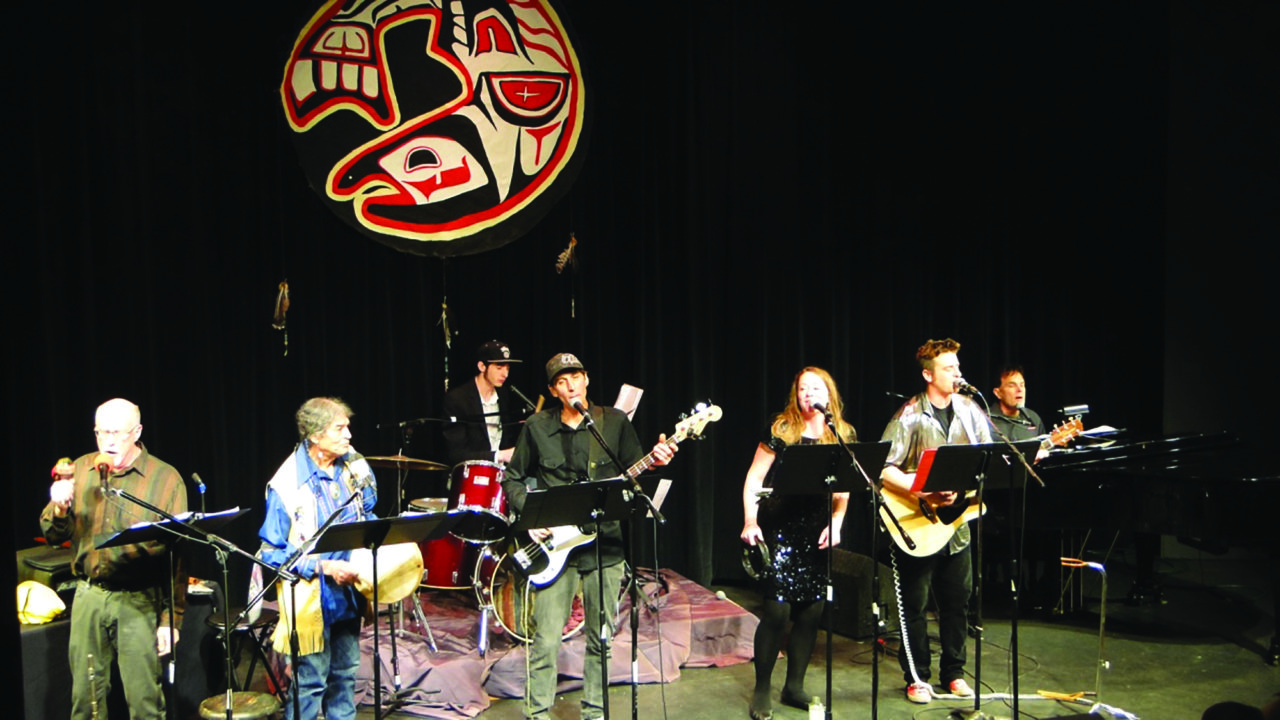The Last Salmon: A recording 20 years in the making
Fall 2021

“I don’t consider myself a story teller,” Phil Davis says, “but I have a story to tell.”
This story, The Last Salmon, began as a book written over nearly a decade of a sentence here, a paragraph there. When it was finally finished in 2016, Davis self-published the piece, and it has only grown from there.
The Last Salmon is set along the banks of the Chuketna River where people have come together to celebrate the season’s first returning Chinook salmon. The children gather to hear a remarkable tale of how this mighty run was nearly extinct years before, giving us the story of Buck, Spring and their fellow creatures as they journey to and from the ocean. It is now available as an audiobook with an accompanying website launching in September 2021.
Alhough The Last Salmon is told from a child-like perspective, Davis “never envisioned that this would be a story exclusively for kids.” Rather, it appeals to humans of all ages as we grapple with the devastating impacts of our lives and industry on the natural world.
“When we’re talking about fixing broken things, there’s the technical side of the solution, like the science behind salmon and water and climate change,“ Davis says. “I tend towards the more emotional side of these challenges.” With a compelling story like The Last Salmon, he tries to engage imaginations by zeroing in on one simple idea: what if we as humans only took what abundance could spare? “If you just put that message out there,” he says, “it might resonate more with people than just the science. When speaking of the head and the heart, it’s the heart.”
Davis recalls two key moments that inspired his tale. The first was learning about Lonesome Larry, the last sockeye to return to Redfish Lake in Idaho after traveling 900 miles in 1992. It made the human impacts on salmon truly hit home. “It amazed me that with diminishing resources, you’re going to encounter the last one,” he says.
Davis was also faced with the struggle of salmon closer to home, while sitting on his deck overlooking the Chewuch River near Winthrop. “We saw kids throwing rocks in a pool by the river, and my ten-year old son Charlie ran down towards them, yelling at them to stop,” he recounts. “I didn’t realize they had been throwing rocks at a fish, likely on its last legs.” He watched as his son gently coaxed the fish back into the main current, and it swam away. This scene stuck with Davis, and informed one of the story’s most heart-wrenching scenes.
Davis’s story moved beyond the page when he mentioned the book to Ki Gottberg, the former Artistic Director of the Merc. “She wanted to do more local stuff. She read it, and had the idea of turning it into a chamber musical,” Davis says. “I let her go for it.” Gottberg’s interpretation stayed true to the essence of the story, and kept much of the original dialogue. She and collaborator Casey James wrote seven original songs to accompany the narration, and the show ran twice at The Merc, in 2016 and 2017, to much acclaim.
The genesis of The Last Salmon continues with the recent release of the audiobook, with narration by Davis and music by local musicians, many of whom were in the original cast. Davis wants to continue to expand the audience and impact of his story by writing elementary school curriculum to accompany the book, building on the early childhood learning about salmon already present in Washington State. He also imagines animation to go along with the audio.
And beyond that? Who knows. “Just like salmon,” Davis says, “it keeps spawning new generations.”
Find the newly released recording at www.thelastsalmon.com or by searching “Phil Davis The Last Salmon” on SoundCloud. The book is available on Amazon.